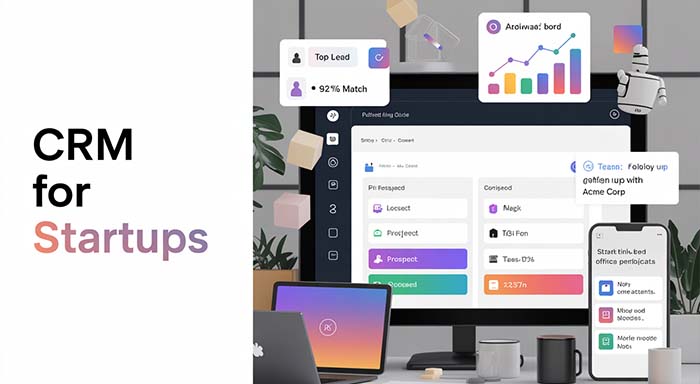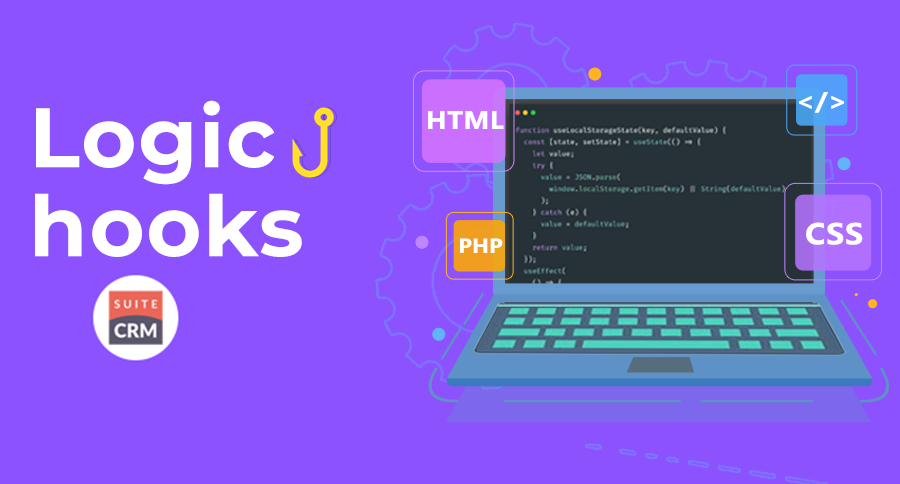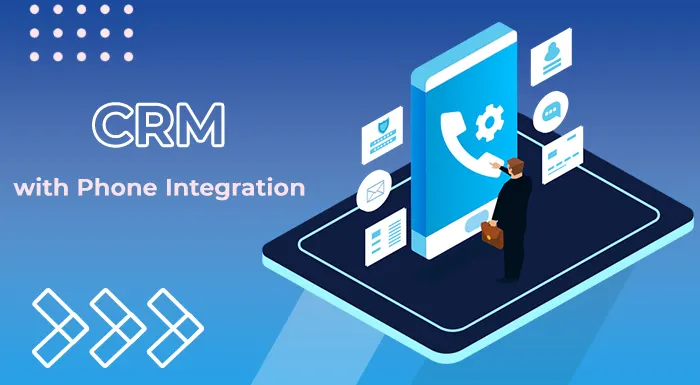Is there any need for CRM for startup companies? Yes, it is.
You will be surprised to know that around 20% of the newly established startups don’t make it past the first year. And, among the 80% that do, around 50% of them don’t make it past the fifth year. Motivation will only get you so far in getting your business up and running. You need robust and tested technology solutions to improve your capital, enhance efficiency, and ensure a good outcome. And one of these technological solutions is Customer Relationship Management software.
As of May 2025, a staggering 94% of the tech-based companies and approximately 71% of small businesses and startups depend on CRM platform to handle their operations. Additionally, according to Salesmate, around 65% of companies integrate CRM within the initial five years of business operations. Businesses report a 17% improvement in job satisfaction, and a 39% increase in cross-selling and upselling revenue after CRM integration. Moreover, CRM can help businesses expedite their sales process by up to 8-14% through improved data accessibility.
If these statistics have not convinced you, the following sections will. Let us understand everything about CRM for startups in this blog.
What Is CRM for Startups?
A customer relationship management tool helps startup companies handle their customer data with ease. Moreover, it provides them with easy-to-use tools and features to automate tasks and personalize communication with customers. In startup environments especially, teams often struggle with multiple projects and time management. Introducing CRM platform can completely transform the way these teams operate and collaborate. It will not only make their job easier and more productive but also enhance the overall business output.
Essentially, CRM can help companies centralize all their customer information under one roof. Moreover, modern CRM tools also come with embedded AI capabilities that maximize organization’s capability for informed decision making.
The following points illustrate how startup companies are using the CRM solution:
- To get deep visibility into each and every sales deal and predict future revenues.
- Recognize target audiences and launch effective campaigns for marketing.
- Ensure instant customer service across numerous touchpoints and channels.
What Are the Advantages of CRM for Startup?
CRM is not just an accessory or an optional upgrade to your business. It is a foundational investment you can make for your business, preparing you not only for present challenges but also for future growth. Here are the top benefits that a robust CRM solution offers:
Expedite Growth and Market Share:
When it comes to startups, revenue is everything. Consistently improving sales showcase that customers remain engaged with your brand. CRM is a vital resource when it comes to boosting your sales, making you smarter and more efficient. It can aid in:
- Segmenting your audience by demographics such as location, age, and average purchase.
- Establish automated actions and outreach sequences.
- Figure out how leads are interacting with your digital mediums such as emails and websites.
- Get insightful reports for data-driven decision making.
CRM for startups can help companies create a structured sales process. Using this structured process, businesses can discipline their sales team and deploy repeatable sales process.
Improved Scalability:
If you are looking to scale without enhancing your tech stack, you need to consider. Your tech stack is almost like your toolbox. Does it have everything to support scalability and overall growth? Are you using a lot of platforms that are serving the purpose and offering no real value? Are you facing problems integrating these platforms to make them work together? CRM aids startup businesses to get diverse tools, features, and functionalities under one tool. This not only allows companies to remain agile but also empowers them to save costs and time.
For example, CRM for startups like Pro Suites and Starter have automation platforms that allow startup companies to handle copious data with ease. Moreover, tools can help businesses manage marketing campaigns and customer service requests as they grow. Not only that, but they also come with an interface that is very simple to use and quick to set up.
Customer Retention Enhancement:
In 2025, around two-thirds of the customers expect brands to adapt to their requirements, preferences, and experiences. What makes retaining customers trickier is the fact that customers’ needs and expectations keep on evolving. However, with the help of CRM and centralized data, startup companies can personalize communications at every step of the way and enhance customer relationships. CRM for startups can help companies centralize all data such as customers lifetime value, what they expect to buy next, or when they last came to your mobile store.
Moreover, the cross-functional teams can collaborate on the same data and minimize the possibilities of communication gaps. For example, when a marketing team generates lead, it will easily show up on the CRM platform, allowing the sales team to start nurturing the lead.
Enhance Operational Efficiency:
When it comes to the financial health of the startup companies, factors like burn rate, runway, and working capital are very crucial. Incorporating a CRM platform can help startup ventures manage these factors with ease. Moreover, you can also advance your operational efficiency, minimize costs, and automate your workflows to cater to customers. Such workflows aid in reducing manual tasks, optimizing allocation of resources, and ensure effective customer experiences.
The following points expound on how CRM can help startup companies in enhancing cash flow and profit margins:
- Accelerate sales cycle by automating follow-up emails and lead management.
- Identify quality leads, which helps sales representatives to focus more on priority leads. It is an effective way of making outreach more streamlined and faster.
- Create robust marketing campaigns with tailored and automated emails that allow leads to flow more smoothly throughout the sales funnel.
- Accelerate the process of payment by collecting payments, invoices, and including payment links into your quotes.
- Enhance lead-to-cash with service data analytics and predictive sales.
So, now you know the advantages of CRM for new companies. But what are the main CRM tools that startup companies must go for. Let us list them out one by one.
Also Read
CRM for Recruiters |Use Cases,Functions ,Purpose
The Role of CRM in Insurance: Core Benefits You Must Know
What Is the Role of CRM for Manufacturing Companies?
What Are the Top 5 CRM for Startups?
Though startup companies work with limited budgets and smaller teams, they have an unparalleled passion to make a difference in the world. With the right push, technology, and decision making, they can establish their presence in the market and generate revenue quickly. Here are the top 5 CRM platforms they can consider to transform their workflow and sales pipeline.
Freshsales CRM-
Freshsales is an AI-based CRM platform for sales professionals to get a complete 360-degree view of customer data across the entire sales journey. It allows business teams to leverage AI capabilities in analyzing sales cycle. Moreover, it recognizes opportunities for betterment, streamlines business strategies, and ultimately ensures better sales results. With robust free plans and economical paid plans, this becomes a top CRM for startups and small businesses.
Main Features-
- AI-driven scoring for lead prioritization as per the levels of engagement.
- Sales automation to automate sales sequences, workflows, repetitive activities, and territory management.
- Customized dashboards and reports as per business profile and particular business requirements.
- In-built phone features with voice notes, call logs, and off-line accessibility of data.
Salesforce Essentials
Salesforce has a much more basic version called “Salesforce Essentials” purpose-built for new businesses. It comprises of all the basic features and customer service capabilities that businesses generally need in their initial growth stage. Additionally, it puts businesses in a position so that they prioritize customer interaction, service delivery, and achieve their objectives.
Main Features:
- Multiple channels for customer support for smooth management on a single platform.
- Standard reporting for daily operations (However, users don’t get intelligent insights which they do in advanced tools).
- Email features for smoother communication.
- Contact management.
Pipefy
Pipefy can be tailored to suit the exact needs of the business. It puts emphasis on pipelines and allows organizations to monitor, streamline, and manage pipelines within minutes. This expert design of this CRM for startups helps users in gaining total control over their processes, derive valuable insights, and enhance predictability. This helps businesses in accelerating sales and meeting objectives of business.
Main Features:
- A template for lead qualification based on standardized process.
- Performance metrics to monitor lost opportunities and closed deals.
- Automated process for customer boarding to ensure a smooth experience.
- Comprehensive management to monitor customers and team members effectively.
Hubspot
It is one of the mainstream CRM platforms with an easy to use, efficient, and comprehensive interface. It is well-recognized for its comprehensive range of features when it comes to handling sales. It aids industries and companies of all sizes to monitor and foster leads. This allows businesses to efficiently and quickly close deals and improve their conversion rate.
It has basic free plan which allows SMBs to leverage standard features for their customer relationships management.
Main features-
- Real-time notifications related to lead interactions.
- Customized emails for prospects and emails.
- Organized and simplified visual board to get a complete view of the sales funnel in real-time. For businesses looking specifically for visual pipeline management, exploring dedicated sales funnel software alongside CRM capabilities can provide even more granular control over each stage of the customer journey.
- Integration support with 500+ business apps such as Zapier, Google Workspace, Outlook, etc.
Monday CRM
Monday CRM is a cloud-driven tool that was initially introduced as a tool for work collaboration. Now, as a robust CRM for startups, it provides best features for project management, customer relationship management, work collaboration, and marketing. It allows all collaborators to work on the same platform. Collaborators might include finance professionals, account managers, sales representatives, etc. One great drawback of this platform is the fact that there is a forever-free plan. This means that the tool can be slightly expensive for startups and SMBs.
Key Features
- Lead management features to monitor leads, assign tasks to sales representatives, and track progress.
- Email content creation and summaries for meeting notes and call transcripts.
- Analytics and reporting to recognize opportunities and trends.
- Over 200 templates to ensure automation and generate boards.
How to Choose the Best CRM for Startups?
While we have enlisted only the top CRM tools, there are a plethora of options out there. With so many options, users can get confused about which one they should prefer. The worst case is going for the platform, which is incompatible with your business needs, budget, processes, and scalability. The six tips described below can help businesses make the right choice in their journey to find the right CRM solution-
Recognize Your Goals-
First of all, it is important to recognize and list out all the objectives you wish to achieve with your CRM platform. What is your ultimate aim? What metrics are you using to measure your success?
For instance, consider that you are prioritizing detailed customer profiles. You want to help your marketing and sales department make sound decisions during their customer interactions. In this case, you must prioritize CRM that allows you to get bird’s eye view on each customer. Additionally, you can look for AI functionalities that suggest the best ways to form connections with the customers.
Make a list of the tech platforms you currently have and the ones you need to acquire. Then, clearly determine the role and purpose of each technology. After that, figure out how you can fit your CRM for startup into this mix. Assess what it can do that your other platforms cannot do.
Focus on Main Features
Single out the most important features that you really need. There are some platforms who are great at analysis of data. Some deliver you solid customer experience. While there are a few tools that depend heavily on Artificial Intelligence.
Well, perhaps, you might need a platform that has all the features. Salesforce has an AI platform called “Einstein” that allows startup platforms to get in-depth data insights, customize experience, and enhance productivity.
Perform Comparison Between Multiple Tools
In the next step, you must focus on comparing top solutions in the market to find out which one aligns with your interests. In your review, consider factors like cost, scale, and user-friendliness.
Ponder over these questions:
- Is this CRM scalable? Can it support my business growth? Does it have a decent limit?
- What will be its overall deployment and management cost?
- Are there any additional fees or costs that are hidden?
- Is it compatible with your present solutions?
- Is it user-convenient? Is its interface well-organized?
Go Through Reviews
Once you have shortlisted the CRM platforms relevant for you, you can read customer testimonials to assess their quality. Are you noticing any recurring themes in terms of hidden charges, limited support, or performance problems?
Get Feedback from Your Team
By now, you might have narrowed down your list to 3-4 solutions. Now, it is important to bring important stakeholders into the fold. If your team likes the CRM you are choosing, then it will ease your process a lot. Essentially, your team will be working on the platform daily so they must be at ease with the platform.
You can be sure to include all IT managers, department heads, frontline staff, or anyone who will utilize the platform regularly.
Get Regular Follow-up with Your Providers
Before purchasing, ask your providers about the service quality and support. Essentially, you need a CRM solution that provides on-demand support to resolve any evident problems. Additionally, you can keep your tools updated with new functions and features.
Conclusion
All new companies need a fully featured and compatible CRM for startups. Moreover, they must incorporate it as soon as possible. If you are adopting customer relationship management tool in your initial days, then you essentially have a clean slate and can track your data from the very beginning. Conversely, if you adopt a CRM at a later stage, then you might struggle to organize or migrate your siloed customer data. The blog explores everything you need to know about a CRM solution for new companies. For blogs and information related to CRM, explore our website.
Author’s Bio

Hello, I am Ashish Dwivedi. I am a core CRM developer with 15+ years of experience in delivering efficient CRM solutions that drive business growth and efficiency. I specialize in creating extensions for SuiteCRM and SugarCRM. My most notable extensions include SuiteCRM Email to Lead, SugarCRM Mailchimp, and SuiteCRM BCC Archiver. I also have a CRM of my own called OutRightCRM.








